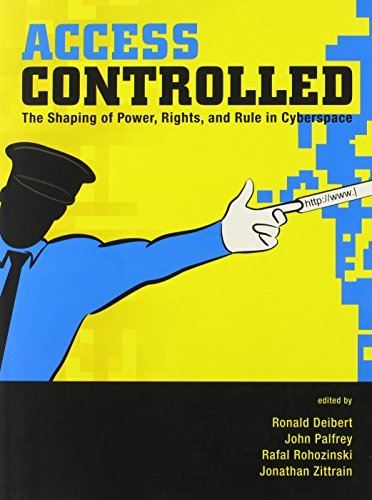What do you think?
Rate this book


Internet filtering, censorship of Web content, and online surveillanceare increasing in scale, scope, and sophistication around the world, in democraticcountries as well as in authoritarian states. The first generation of Internetcontrols consisted largely of building firewalls at key Internet gateways; China'sfamous "Great Firewall of China" is one of the first national Internetfiltering systems. Today the new tools for Internet controls that are emerging gobeyond mere denial of information. These new techniques, which aim to normalize (oreven legalize) Internet control, include targeted viruses and the strategicallytimed deployment of distributed denial-of-service (DDoS) attacks, surveillance atkey points of the Internet's infrastructure, take-down notices, stringent terms ofusage policies, and national information shaping strategies. Access Controlledreports on this new normative terrain. The book, a project from the OpenNetInitiative (ONI), a collaboration of the Citizen Lab at the University of Toronto'sMunk Centre for International Studies, Harvard's Berkman Center for Internet andSociety, and the SecDev Group, offers six substantial chapters that analyze Internetcontrol in both Western and Eastern Europe and a section of shorter regional reportsand country profiles drawn from material gathered by the ONI around the worldthrough a combination of technical interrogation and field researchmethods.
Paperback
First published January 1, 2010